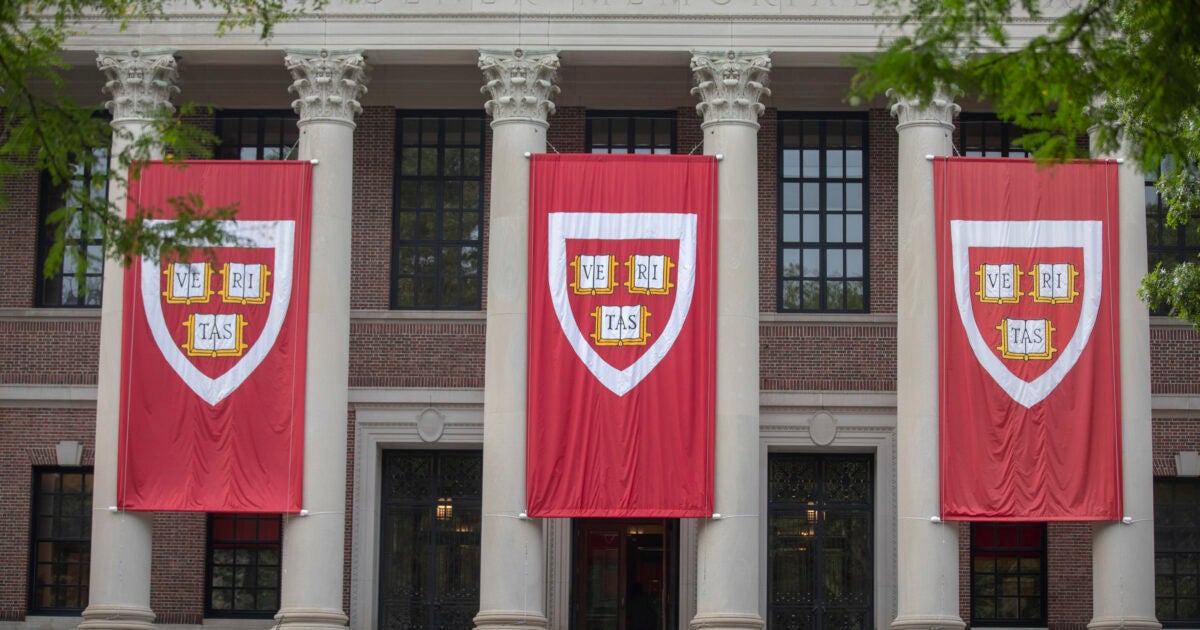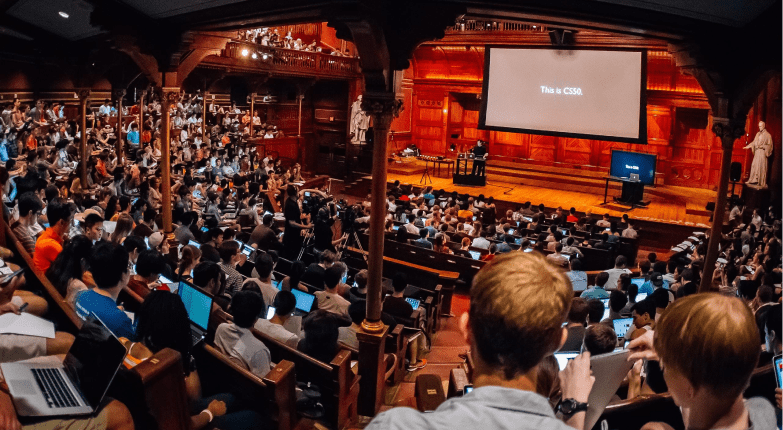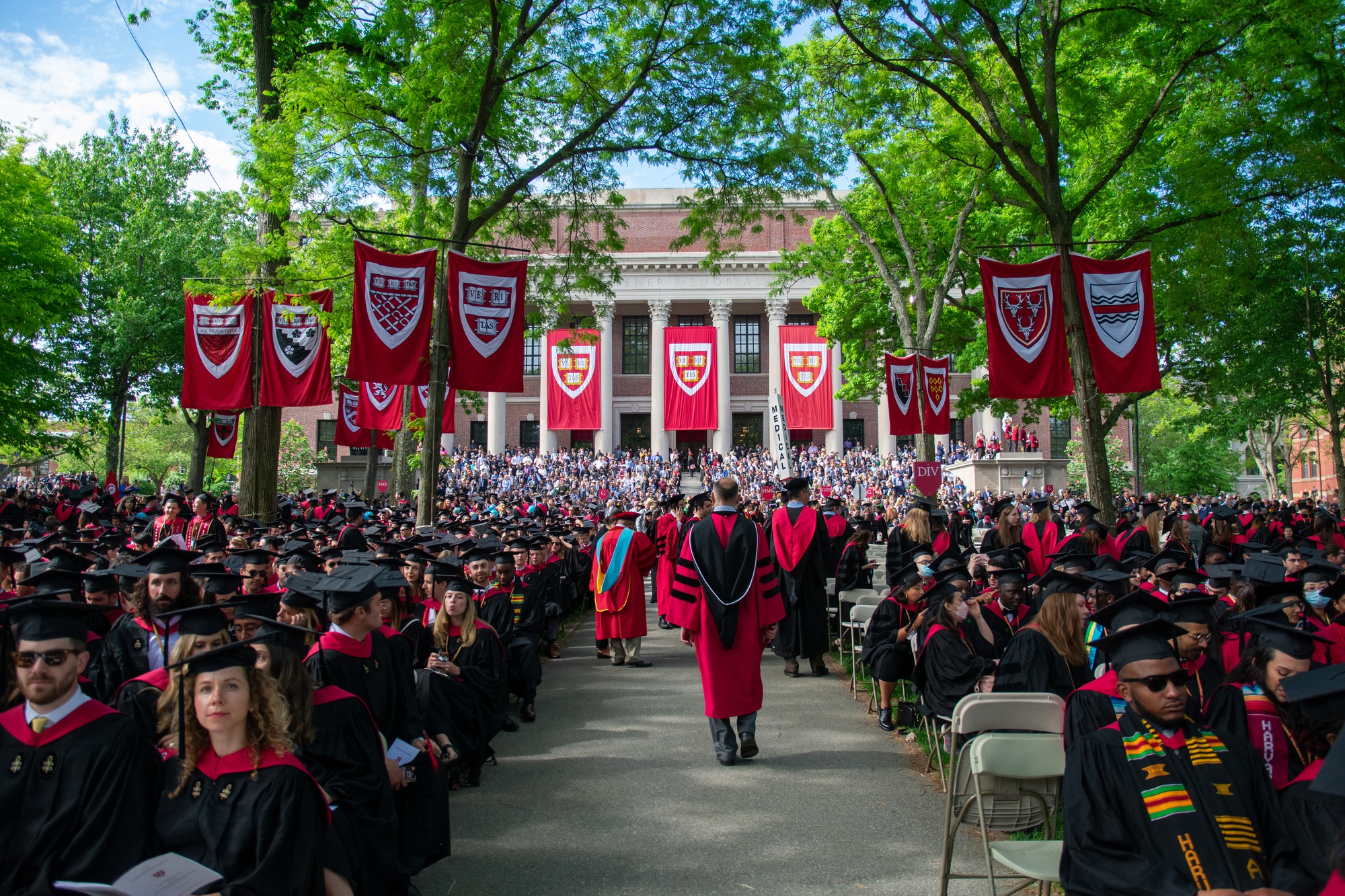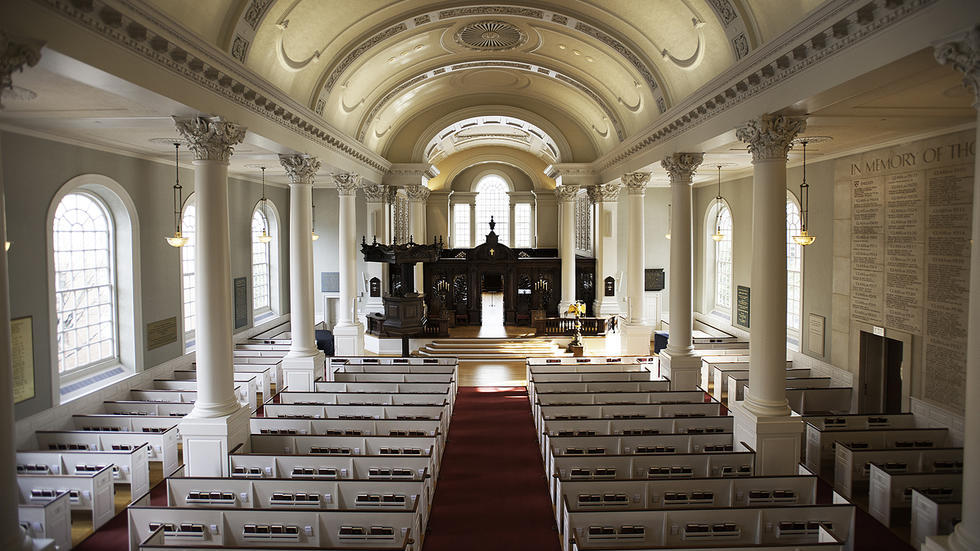10 Key Takeaways from a Harvard Education

Coming from Honduras, attending college in the U.S. felt an unattainable dream during my high school years. Emblazoned upon one of the entrances to Harvard University one can find the words:
"Enter to Grow in Wisdom, Depart to Serve Thy Country and Thy Kind"
This adage, although seemingly cliché, had its words weigh heavily on me as the years went on. I promised myself when starting my first year that I would not leave its walls an unchanged man. Despite its highs and lows, here is a final list of my major takeaways from my 4 years as an undergraduate at Harvard University.
Do something, do it passionately, and do it well
The first few weeks of Harvard felt like more of an extended summer camp than anything else, with hundreds of eager, giddy classmates wanting to meet each other and form friend groups early on. Everyone was on a clean slate, and despite everyone's diverse backgrounds there was one thing that always, always stuck out as a common characteristic of the group: being mission driven. Even if not obvious at first sight, everyone had some sort of particular "drive" that defined them. From the kids that were international chess champions, to the olympians, to the decorated oboe players. Although we all had massively different upbringings, we all came here for a reason. At least, that's what everyone tries to outwardly express throughout freshman year.
This drive translated well into academic performance for many, as there were seldom any instances when my peers would underperform relative to expectations. This positive or, as some may see it, negative reinforcement is one of the strongest forces at play at elite schools. Aside from the impostor syndrome that plagues every freshman, feeling that all their peers are doing something cool gives them that extra push to do something even cooler.
Some students are remarkably humble about their achivements, showing a lot about their character and ability to downplay talents which are a major part of their identity. One of the most memorable instances of my college experience was becoming friends with someone only to find out months or years later they had globally recognized accolades they never even mentioned. Although this extreme pressure benefits many, it has a dark side:
Unbridled ambition has a cost
Everything at Harvard has a next step: that next interview, that next acceptance letter, that next fellowship application...the life of a Harvard student is an endless pursuit of milestones. This eternal treadmill is paved with fear, tears, and often times, jealousy. It was common for some students to put themselves and their priorities above everyone else, even at the detriment of best friends, family and their loved ones. In times of high pressure and big stakes, such as during grad school acceptance weeks, it was not uncommon to see peers one-upping each other in unimaginable ways. Notwithstanding, this culture is how many students got there in the first place, especially those coming from competitive prep school. Of course, those frequent accomplishments slow down in the real world, as timelines become longer and more opaque.
Little does that culture of "quick achievements" prepare us for the monotony of the daily adult grind, where one finds oneself waiting 40 minutes in traffic on a Monday afternoon, where one has to take a trip to the DMV to renew a license, when one has to trug along without a clear grasp on the next rung in this ladder we call life. As a result, burn-out intensifies, and the discrepancy between this milestone culture and reality often comes at the price of students questioning their own purpose in life, often resulting in negative conclusions. I distinctly remember sitting on the steps of Widener Library my freshman year and hearing one of my close friends say:
"my whole life I prepared and worked hard for every accomplishment to get into this school, it was the end of a journey, the pot of gold at the end of the rainbow, but no one prepared me for what I would do once I arrived"
Many of those folks that are too self-absorbed prioritize their own treadmill over the people who care about them the most. As holds true in love, friendship, and business, no one is too busy if they truly cared. Harvard, in the end, made all of us really good at identifying those people who are too deep in their own world to prioritize others.
To become the best, surround yourself with the best
Two questions that regularly float around the circles of Silicon Valley and tech culture are:
- How is Harvard still around if most of its popular courses can easily be found online, or their counterparts found for free on MIT's Open Courseware?
- Why would anyone still try to go to college in a society where endless success stories are paved by dropouts and street smarts? Is college even worth attending today?
I would argue few people go to Harvard itself for its academics, but almost everyone attends due to its network effects. And when I say academics, I mean those students who truly decided on accepting their admission offer on the basis of the professors, research, and subject matter above anything else. Sure, the university itself is renowned for its research, but at the end of the day, the education it imparts is mostly a social education.
Good or bad, Harvard is a microcosm of the elite echelons of American society, rife with superficial meritocracy, old money, unbridled ambition, and an energy unmatched by anywhere else...a place rich with nuance and juxtaposition. Although it is true that for those who seek the standard definition of "success" in an entrepreneurial setting can absolutely do so without attending university at all, I would argue higher education still has an important place to fill in society.
When I say higher education, I don't mean $50k a year degree-mills with subpar teaching and opportunities, but rather places that aggregate diverse perspectives, provide a comprehensive social + academic education, and prepare its students to be global citizens. One thing this type of higher education provides that the "street smarts" of Silicon Valley lacks in structure and a clear path for many students. Colleges like Harvard provide an environment where making mistakes and exploring varied interests doesn't have to come with a catch. That is, it is place of learning for the sake of learning, both from instructors and from one's peers. For many, this is still highly beneficial and I know many peers who greatly benefit from an environment like this. At the end of the day, people go to Harvard for networking and to be surrounded by high energy folks with sky-high aspirations, and it has kept its place as prime real-estate for such folk for hundreds of years.

Regardless, a vast majority of my professors were not only eminent scholars, accomplished researchers, but also absolute legends in their field. Many had theorems or inventions named after them, and had left a radical mark in the encyclopedia of human knowledge. They say if you feel you're the smartest person in the room, you're in the wrong room. At Harvard, I felt like I was in the wrong universe. The amount of technical prowess, knowledge, acuity in thinking from my peers kept me on edge, and I truly felt 10x improvements in my academic + professional life by virtue of the presence of such peers. We are social animals, and we respond to social cues. Being in a place that exerts such tangible pressure by virtue of its competitiveness is something I'll never forget.
Looking good on paper can get you pretty far, but may not be enough
If there's one quality that sums up every Harvard student/alum I know, it is the ability to look really good on paper. Either their resume, how they tell their story of their previous accomplishments, or how they frame their decorum of accolades when pursuing professional opportunities, it's almost impossible to not feel underaccomplished when looking at other peers.
Cantonese has an awesome phrase "見人講人話,見鬼講鬼話" (gin yàhn góng yàhn wáa, gin gwái góng gwái wáa) which roughly translates to "he who deals with humans speaks like a human, he who deals with ghosts speaks like a ghost". Its meaning says something important about knowing your audience, that is, framing your ideas/presentation/impressions based on the people you're dealing with in any situation. Although the phrase has a somewhat negative connotation of coming off as insincere or two-faced, my classmates always knew their audience, and mostly all of them had the uncanny ability to stand out regardless of their environment and people around them. Whether it be a consulting interview, a competitive application to an NGO, or a pitch to an angel investor for a startup idea, my classmates really knew how to pull the strings.
Aside from the uncanny ability of "manipulation" learned from Harvard, students are also very good at framing their accomplishments granduously. Many might often go over the top in how they do so, veering on the edge of arrogance.
Either find a way to hack the system or pave your own path
Perhaps one of the most important lessons I learned at Harvard is that rules and systems are meant to be broken. That "scary interview", or "intimidating grad school application" simply has another human being on the other side, with their whims, fears, insecurities, and quirks just like the rest of us. Systems are built by humans, and are therefore built to be hijacked, and not necessarily in malicious ways. Learning "how to pull the strings" is probably the first thing every student learns to perfect throughout their 4 years, and I'd wager is one of the key drivers of Harvard students' influence across the world.
Being scrappy eliminates ones' fear of systems with rigid rules, always finding a way to either get around those rules or game the system itself. At some point at Harvard, a student's personality is defined by how risk-averse he or she is, as that quality will define such student's social life, professional ambitions, and extra-curricular pursuits. I remember some of my classmates going through the incredibly competitive bulge bracket bank interviews junior year displaying their cunning in the most subtle ways.
Harvard students prime themselves for the position they want to be in, whether it be a particular job or leadership position. Students reached out to key recruiters at companies such as Goldman Sachs since freshman year, or even since high school to have an edge when recruiting for internships as juniors. Those who wish to reach the top of the ladders understand these ladders are shaped by other humans, and understand what it takes to influence them or succeed in any sort of conditions, however adversarial they may be.
Who knows you well is more important than you think
One of my first observations of Harvard was that, just as anywhere else, its social hierarchy was ruled by bias. Freshman year, given everyone is on a clean slate, students expend a large effort to carefully craft their new identity, often hiding their true personality with the hopes of climbing a social ladder or coming off as more impressive to peers. This façade, however, can only get one so far in any hierarchy.
What matters more is who really knows you, your imperfections, and your shortcomings. There was a rare breed of student that would stay true to his/her core values throughout all 4 years, never needing to create a different public identity. These traits became even more highly valued as the years went on, and the students who would remain true to themselves and humble would become coveted friends for many. On the flip side, there are many friends that although I spent nearly 4 years with, I still can't say I truly "know them". Being humble really pays dividends, and those who are genuinely humble reaped rewards far more than anyone else. Being humble is important, as I learned, as it comes hand in hand with sincerity. It is a lot easier to trust someone who stays true to his/her convictions than someone who can transform his or her personality into someone unrecognizable at a moment's notice.
Reality often fails to be glamorous
The façade every freshman puts up when meeting other students quickly fades away. The image every student creates of themselves quickly cracks as the years pass by. The final years are the times when I, and others I am close to, felt the most vulnerable. It was times like these when me and my friends realized our time together is our most valuable asset, and there were no more hours left for superficiality. At that point, true friends come out, enemies wash away their pettiness, and everyone huddles together under a collective awareness, or dare I say fear, of what's coming next.
Upon graduation, some may attempt to add more steps to their ladder of milestones, while the treadmill comes to an end for others. Freshman year, we're all sold these grandiose visions of our "responsibility to do big things", but what if "big" differs from student to student? Truth is, reality often fails to be as glamorous as its painted, and life plans change based on circumstance for many of us. As the years went on, it became more and more apparent that following one's identity is more important than the superficial goals society may instill upon us as students.

Not every student graduates or drops out becoming the next Zuckerberg - for most, that's not matters nor what should matter. Over the years we instead developed a peculiar resilience and appreciation of each other, and despite whichever path we choose, we'll be alright. Not everyone operates on the same clock, and I've been pleasantly surprised with the path many classmates have taken compared to what they wanted to do upon first meeting them. Just because one's plans may not pan out as expected doesn't mean they are still outside the realm of possibility.
The first step to expanding your reality is to discard the tendency to exclude things from possibility
- E.E. Cummings, Harvard 1915
Life is short, you're not invincible, and you're not worth more than anyone else is
The moment we set foot on campus until the very first day of class, we're constantly bombarded with the idea we're "special" - that we have a special responsibility to do "something big" for the world. Graduation, however, had a serious tone for me. It was a time of remembrance, of prophecy, and of echoes of times past...reminding ourselves who we are. Remiscing on our collective human experience, and the unexpected turns of life, is a far more productive exercise than the hype being sold to us as freshmen entering the college. I recently spoke to an alum who had just attended his 10 year reunion and asked him "were you surprised at what your fellow alumni were doing professionally after 10 years?", to which he replied "no idea, we never talked about it...it's not important nor is it what matters".
Him and his friends spent the week simply reliving those special, treasured moments from their time together, the late night outings to taco joints, the shared all-nighters in Lamont library, the moments when they first met, these are the hidden gems of life that are worth living for. The years whiz by in what feels like seconds, and we all become surprised to realize it now, despite how obvious it was...ever looming in the back of our minds. The differences that once stood out when we first met were now overshowed by deep awareness of our similarities and shared experience. Our lives are not worth more than any other human being on earth, nor are we more special simply because we of where we were born or the circumstances that surrounded us growing up. Our role in this world is to do what we can leave it a better place than how we found it.
Be careful with the example you set for others
One of my most vivid memories of college is sitting in the coveted course: USW 35: “Dilemmas of Equity and Excellence in American K-12 Education" and listening to the fantastic professor Katherine Merseth stand up at the front of the classroom and tell all of us:
You think you all got here because you're wicked smart, don't ya? Well think again. You're the lucky ones...the ones who survived the cracks in our system, and you're the ones that have the biggest responsibility to fix it.
One of the reasons I truly apppreciated Prof. Kay Merseth was for her ability to not beat around the bush and tell reality like it is, really making us question the nature of our own privilege. She made us visit all sorts of schools in Boston, being extremely observant and comparing the schooling opportunities kids had across different social strata. The reality was frightening, knowing how all these kids are both filled with dreams of whom they want to become in the future, but with very different manifestations of such realities based on where they live. After the experience, I joined a program called Big Brothers, Big Sisters of Massachusetts which would match students with younger kids from disadvantages positions to be their friend, mentor, and well an "older brother" to a limited extent. Understanding my fortunate position and realizing the power role models can have on others was lifechanging to say the least.
Many of these kids have fewer opportunities, and as they grow up, they are faced with constant disappointment from peers and authority figures with respect to their dreams. Having someone that can inspire you and believe in you at a core level is invaluable, and I attribute much of where I am today to role models of my youth that believed in me back then. The social responsibility the Harvard community pushes on each other is extremely beneficial, and a really great takeaway from my years there.
The "real world" is nuanced
Hidden away on the upper rafters of Memorial Church at Harvard University lies a memorial etched on the wall to honor those students who died in the midst of World War II. Each name is enumerated by school department affiliation and year, commemorated forever. Near the very end of the list, however, is a quite peculiar sight:
Adolf Sannwald, Divinity School, (Enemy Casualty)

Amidst all the students commemorated for their valiant effort in one of the darkest points of human history was the name of a very enemy they were fighting against. It is quite surreal to imagine that Sannwald and others on that list could have been walking the halls of Harvard together, eating together, learning together, and yet have been on opposite fronts with polar opposite ideologies. The decision to mark his name came with heavy controversy, marked as a critical mistake done by the administration and pushing the lines of what is considered ethical. Truth is, the name remained, and the real story of Sannwald did not materialize until years later when his wife penned a letter to the University full of comprehensive information about her deceased husband's life.
Sannwald was born to humble origins in a small town in Germany, where he grew up a studious child with great admiration for the clergy. After studying theology, he was awarded a scholarship to study at the Harvard Divinity School in Cambridge, Massachusetts in 1925. He became a highly respected priest, bringing the gospel to impoverished homes around his country. He actively spoke out against Nazism, uncompromising his core values.
Despite being threated by the party of being sent to a concentration camp, he remained adamant of his position. Sannwald worked hard to raise awareness against the great injustice towards the Jewish diaspora, and understood deep down the horrible path his state was taking. At the age of 41, with 5 children, he was forced to serve on the front lines of the war, where he likely died a harrowing death.
Adolf Sannwald died as a German soldier in the fighting forces of a regime he had despised and considered a calamity to his nation.
Harvard equips us all to be global citizens...to understand the nuance of life. Just as Sannwald's story changed the narrative of the administration, I realized as the years go on, the line between the good and bad is a fine line, way more blurry than I initially thought. To say humans are complex is the biggest understatement, as what drives us different from where we're born, whom we're surrounded with, and what our opportunities are.
Much evil throughout mankind's history has been a product of alienating others by simplifying their existence to a mere category, religious denomination, or political affiliation. Our psyche is an irrational, beautiful, complex, intelligent, and emotional thing...and, at the end of the day, it is what brings us together, and it is indeed what makes us, well, human.
As my college years came to a close during the 2019 Harvard Commencement Address, Reverand Nieman of the Divinity School preached to us all:
“The Memorial Church stands as a testament to service and sacrifice, paideia and piety, veritas and caritas,” said Walton. “We are all called to a cause greater than ourselves. … Like Adolf Sannwald — the presumed ‘enemy combatant’ — we should never assume that our service will come with accolades and awards. Trying to do the right thing may come with a price. Some may even label you an enemy combatant.